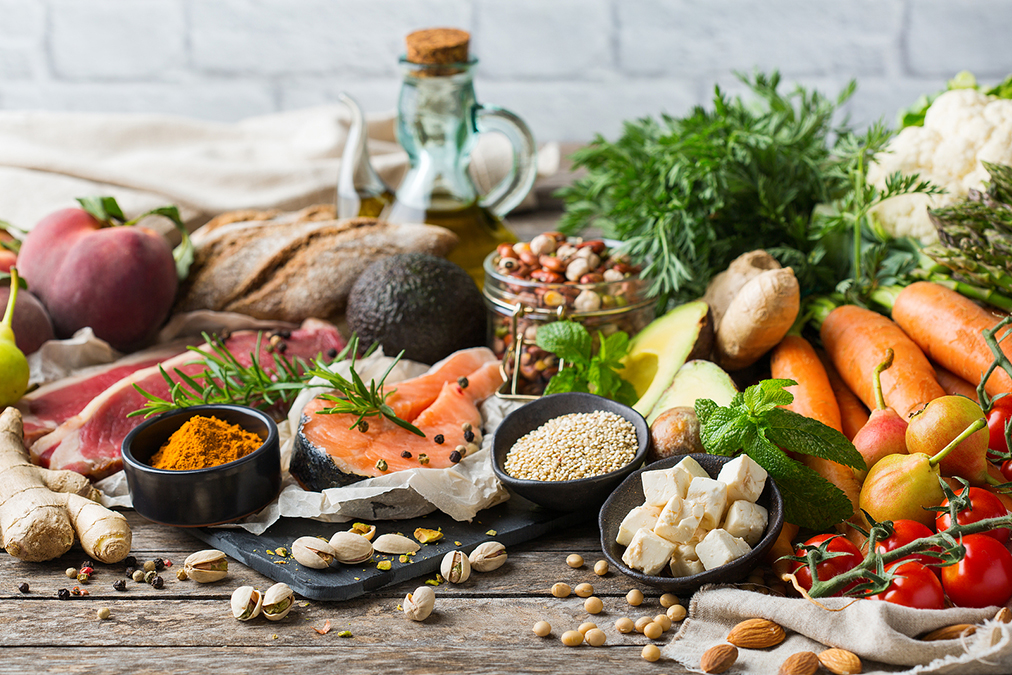 Doctors and health scientists all agree on one thing: nonalcoholic fatty liver disease (NAFLD) is caused by poor dieting.
Doctors and health scientists all agree on one thing: nonalcoholic fatty liver disease (NAFLD) is caused by poor dieting.
But if we have to eat differently, which diets actually work? A new study in Nutrients offers two solid answers.
When it comes to NAFLD, doctors recommend losing excess weight, controlling blood sugar, and lowering inflammation. So researchers reviewed the best-quality clinical trials from 2019–2024 to find out which eating patterns did this.
All the studies included adults with NAFLD. Some also had obesity, type 2 diabetes, or high blood pressure. Each study compared diet styles and tracked effects on body weight, blood sugar, inflammation, and liver health.
Two eating patterns stood out:
The Mediterranean Diet
-
● Rich in fruits, vegetables, whole grains, olive oil, nuts, seeds, and fish
● Minimal red meat and processed food
Intermittent Fasting
-
● Eating within an 8-hour window daily (time-restricted eating)
● Or eating very little every other day (alternate-day fasting)
Why these two worked:
Weight loss:
-
● Mediterranean: up to 8.5 kg lost
● Intermittent fasting: up to 6 kg lost
Liver improvements:
-
● Mediterranean: ALT liver enzyme dropped by 15–25 units
● Intermittent fasting: Liver fat dropped by 15–25%
Inflammation: Both reduced markers across the body
Blood sugar: Both improved fasting blood glucose and insulin sensitivity
Waist size: Mediterranean diet cut waistlines by up to 7 cm
Cholesterol: The Mediterranean diet also reduced LDL cholesterol
Two other diets showed moderate results:
-
● Lacto-ovo-vegetarian: Significant weight loss, better blood sugar control, and lower liver fat
● DASH diet: Lowered blood pressure and inflammation, plus improved liver enzyme levels
Bottom line: If you have NAFLD, load your plate with fruits, vegetables, legumes, whole grains, fish, olive oil, avocado, nuts, and seeds. Eat less sugar, red meat, and processed food. And shrink your eating window to 8 hours a day—for even better results.

 Overcoming IBD
Overcoming IBD Multiple Sclerosis
Multiple Sclerosis Banishing Bronchitis
Banishing Bronchitis Gum Disease Gone
Gum Disease Gone Overcoming Onychomycosis
Overcoming Onychomycosis Neuropathy No More
Neuropathy No More The Prostate Protocol
The Prostate Protocol Brain Booster
Brain Booster
 Ironbound
Ironbound
 Solution for Shingles
Solution for Shingles
 The Bone Density Solution
The Bone Density Solution
 The Ultimate Healing Protocol
The Ultimate Healing Protocol
 The Parkinson's Protocol
The Parkinson's Protocol
 The Chronic Kidney Disease Solution
The Chronic Kidney Disease Solution
 Overthrowing Anxiety
Overthrowing Anxiety The Fatty Liver Solution
The Fatty Liver Solution The Hypothyroidism Solution
The Hypothyroidism Solution
 The End of Gout
The End of Gout The Blood Pressure Program
The Blood Pressure Program
 The Oxigized Cholesterol Strategy
The Oxigized Cholesterol Strategy
 Stop Snoring And Sleep Apnea Program
Stop Snoring And Sleep Apnea Program
 The Arthritis Strategy
The Arthritis Strategy The Vertigo & Dizziness Program
The Vertigo & Dizziness Program The 3-Step Diabetes Strategy
The 3-Step Diabetes Strategy Hemorrhoids Healing Protocol
Hemorrhoids Healing Protocol The Erectile Dysfunction Master
The Erectile Dysfunction Master Weight Loss Breeze
Weight Loss Breeze The IBS Program
The IBS Program The Insomnia Program
The Insomnia Program The Migraine and Headache Program
The Migraine and Headache Program The Neck Pain Solution
The Neck Pain Solution The Menopause Solution
The Menopause Solution The Ejaculation Master
The Ejaculation Master The TMJ Solution
The TMJ Solution The Acid Reflux Solution
The Acid Reflux Solution The Fibromyalgia Solution
The Fibromyalgia Solution The Psoriasis Strategy
The Psoriasis Strategy